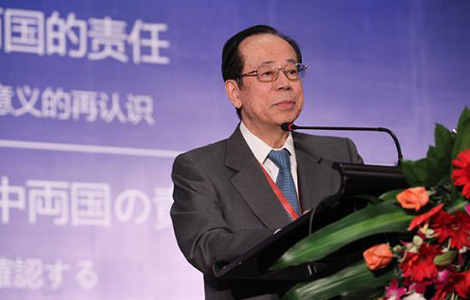Law to curb multinationals' double standards
Updated: 2013-10-29 21:30
(Xinhua)
|
|||||||||||
BEIJING - China's newly revised consumer rights law, which tightens the liability of businesses, may help prevent multinationals from applying double standards on Chinese consumers, said a legal expert here on Tuesday.
The revision to the law on consumer rights and interests was adopted by China's top legislature on Friday. It is the first such change since the legislation was adopted in 1993.
The revision has introduced a number of new ideas and practices in protecting consumer rights and kept up with international practice, said Prof. Liu Junhai, of the Law School at Renmin University of China, in an interview with Xinhua.
For instance, it first regulates how manufacturers should recall their faulty products. It also eases conditions under which consumers can ask to return, change or have merchandise repaired.
The law bans dealers from forcing consumers to make purchases or imposing unfair and unreasonable conditions, in such forms as articles in contracts and notices at their shops.
"On several occasions, I have been told by foreign businessmen that their companies applied different policies on Chinese consumers from those in their own countries because Chinese laws did not ask them to raise standards," Liu said.
Now, with the new law setting higher standards, they will have to follow, he said.
Multinationals have been caught in several controversial consumer rights disputes in recent years.
In March, Apple was accused of offering discriminatory after-sales services in China by China Central Television (CCTV), the country's national broadcaster. The report triggered waves of criticism and led Apple Inc. CEO Tim Cook to apologize in April.
Last week, CCTV also carried reports questioning US coffee chain Starbucks' pricing policy in China and about a fault with electronics giant Samsung's smartphones.
Liu praised the levelling effect the law will have on enterprises doing business in China, saying, "It is not only about foreign companies. It is about every player in the Chinese market. The revised law enhances consumer powers. The tougher consumers are, the more competitive the business will be."
The revised law also endorses higher compensation for consumers and imposes heavier fines on business owners who violate consumer rights.
At a press conference after the revision was adopted, Jia Dongming, head of civil law under the Commission for Legislative Affairs of the NPC Standing Committee, said that one reason for the revision is the need to boost consumer confidence.
"If people feel secure and are more inclined to spend, that means more revenue, more profit and domestic demand will expand. The whole country will benefit," according to Jia.
Related Stories
China amends consumer rights law 2013-10-25 17:26
Consumer rights law revision pledges higher compensation 2013-10-21 16:27
Law pledges more compensation for consumers 2013-10-21 15:23
Chinese legislature still mulling consumer rights law 2013-10-14 20:47
Today's Top News
Fonterra botulism scare laid bare in board inquiry
Apple's quarterly results disappointing
Experts quash Wi-Fi cancer rumor
Li gives credit to special friend from Germany
Lightening marriage over in a flash
Baidu's fund raises 1b yuan
Storm wrecks havoc in S Britain, leaving 4 dead
'Prime time' for Chinese firms to invest in EU
Hot Topics
Lunar probe , China growth forecasts, Emission rules get tougher, China seen through 'colored lens', International board,
Editor's Picks

|

|

|

|

|

|





